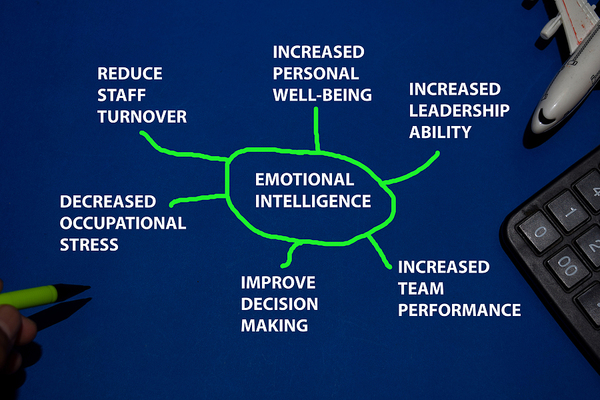THE WORLD’S #1 EXECUTIVE COACHING AND BUSINESS COACHING BLOG SINCE 2017.
Social Skills of the Emotionally Intelligent Leader
January 4, 2021 | Category: Blog, Intelligent Leadership | Last updated on: March 12, 2025
“It takes something more than intelligence to act intelligently” – Fyodor Dostoyevsky.
Dostoyevsky knew what he was talking about. That something extra is emotional intelligence, one of the essential components of intelligent leadership. In my leadership development books, I have always stressed the importance of emotional intelligence. I have also defined and analyzed its components, offering a comprehensive explanation of the role it has in intelligent leadership.

Emotional intelligence is central to effective leadership.
In addition to self-regulation, self-management, empathy, and motivation, social skills are among the fundamental constituents of emotional intelligence. What are these social skills, and how does the development of emotional intelligence impact them?
In “Intelligent Leadership,” I have defined social skills as the ability to manage relationships and build networks.
Persuading and Influencing Others
According to Dwight D. Eisenhower, “leadership is the art of getting someone else to do something you want done because he wants to do it.”
To accomplish that feat, you need to be able to enthuse others, convincing them of the validity of your ideas and approach. How does emotion factor into this?
To get employees to buy into his/her ideas and proposed course of action, a leader needs to read the pervasive emotional current in the group and adapt to it his/her way of selling the idea. The goal of persuasion is to make people want what you want. It is the only subtle approach to persuasion, and it happens to be the most effective.
Short of soft persuasion, you can only rely on coercion and nagging, both of which are attempts to force people to do your will, against their own.
Communication Skills
A good communicator picks up and conveys thoughts as well as emotions. In the context of intelligent leadership, communication also refers to taking action, willingness to hear about problems and to address them, picking up emotional cues, and fine-tuning communication according to these cues.
Conflict Management
Diplomacy and tact also rely heavily on the correct perception of the emotional current. The goal of conflict management is the attainment of win-win situations. Thus, negotiation and mediation are also essential. To help parties in conflict understand each others’ positions, the mediator needs to facilitate recognition of the feelings that support the opposing positions. None of this is possible without the extensive use of emotional intelligence.
Conflict management is a key social and leadership skill
Leadership Skills
Leadership and emotional intelligence are inextricably intertwined on so many levels that one is a constituent of the other and vice versa. If we consider the ability to influence and to enthuse others a social skill, then it is clear that leadership itself is a social skill stemming from emotional intelligence.
This key social skill allows leaders to:
- Articulate compelling visions and convince others of their merits
- Lead by example
- Provide leadership without being in a position of authority
- Support and coach colleagues, elevating them and allowing them to develop their leadership skills
Skills Required to Deal with Change
Handling change is a social skill in its own right, and in the context of leadership, its importance is even greater.
Effective leaders do not react to change. Instead, they deal with it proactively, acting as agents of change rather than the sufferers of its impact. This way, emotionally intelligent leaders turn change from a threat into a harbinger of opportunities.
Building Rapport
To build networks, one needs to be able to build meaningful and lasting relationships with individuals. To build and maintain rapport, one has to be genuinely interested in other people and value them for their qualities and abilities.
Teamwork
Fostering cooperation and collaboration is another key social skill with its roots in emotional intelligence.
Leaders who possess this skill are keen to share their ideas, abilities, and personal resources to forward the common cause. They know that there is strength in cooperation and thus actively seek out opportunities to collaborate.
If you want to learn more about the role of emotional intelligence in leadership development, check out my leadership coaching services.



